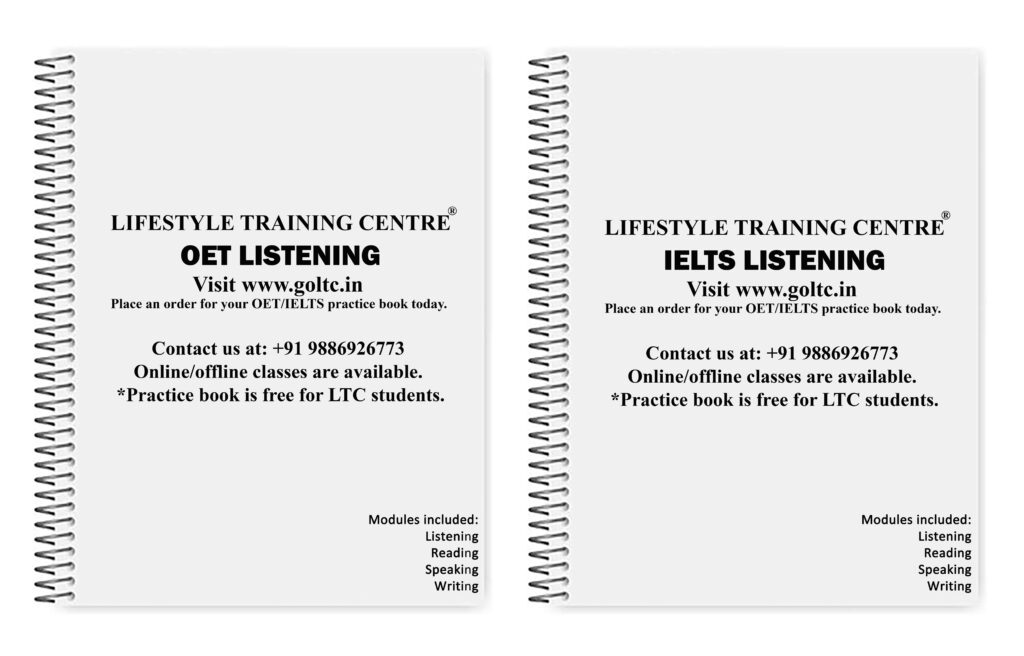1. How often do you read, and what types of reading materials do you prefer?
I don’t consider myself a voracious reader, but I do enjoy reading occasionally. I mostly gravitate towards autobiographies, short stories, and self-help books as they strike a balance between entertainment and inspiration. Additionally, I like browsing online articles and blogs to stay informed about various topics. Reading, for me, is a way to broaden my horizons without feeling overwhelmed by long commitments. While I might not spend hours buried in books, I ensure that what I read adds value to my perspective.
2. Do you think reading is an important skill in today’s world? Why or why not?
Reading is undoubtedly a cornerstone skill in today’s fast-paced, information-driven world. It sharpens the mind, improves critical thinking, and helps individuals navigate the flood of information available online. Whether it’s interpreting data, understanding global trends, or simply learning something new, the ability to read and comprehend is second to none. Moreover, reading cultivates empathy by allowing people to experience different perspectives. As the saying goes, “Knowledge is power,” and reading is the gateway to that power.
3. What is the last book you read, and can you share your thoughts about it?
The last book I read was “Wings of Fire” by Dr. A.P.J. Abdul Kalam. While I don’t read often, this book was a breath of fresh air. It narrates the inspiring journey of a man who rose from humble beginnings to become one of India’s most respected leaders. What stood out to me was Dr. Kalam’s unwavering determination and resilience, despite facing numerous challenges. The book taught me the importance of dreaming big and working hard to achieve those dreams. It left me with a profound sense of motivation and a belief in the power of perseverance.
4. How do you choose what to read, and do you often try new genres or stick to your preferences?
I usually select books based on recommendations from friends or books that are widely acclaimed. While I stick to familiar genres like autobiographies and motivational books, I occasionally step out of my comfort zone to explore something new. For instance, I recently read a science fiction novel, which was a pleasant surprise. Trying new genres keeps my reading experience fresh and engaging, but I always return to materials that align with my personal interests. “Variety is the spice of life,” and this applies to reading as well.
5. What role does reading play in your personal and academic life?
Reading plays a dual role in my life—it’s both a source of learning and a way to unwind. On the academic front, it helps me gather knowledge, improve my vocabulary, and enhance my analytical thinking. Personally, it serves as an escape from the daily grind, allowing me to relax and reflect. Even if I’m not an avid reader, the books I choose always leave an impression and contribute positively to my growth. It’s safe to say that reading is a tool for self-improvement and leisure at the same time.
6. Do you think people read more or less compared to the past, and what do you attribute this trend to?
I believe people are reading differently compared to the past rather than more or less. While the popularity of printed books may have declined, the rise of digital content has kept reading alive in other forms. Blogs, e-books, social media posts, and online news have taken centre stage. This shift can be attributed to technological advancements and the convenience of accessing information online. However, the fleeting nature of digital reading might not offer the same depth as traditional books, which is something I feel people miss out on.
7. Are there any specific reading habits or routines that help you focus and retain information better?
Yes, I follow a few simple habits to make my reading more productive. I prefer reading in a quiet, well-lit space to avoid distractions. “A stitch in time saves nine,” so I always take notes while reading to ensure I retain key points. I also break down my reading into manageable chunks, which prevents me from feeling overwhelmed. Revisiting notes or summaries later helps reinforce the information. These small routines have made my occasional reading sessions more meaningful and effective.
8. Do you think schools should encourage reading as a habit, and how can they do so effectively?
Absolutely, schools should prioritise fostering a love for reading. They can achieve this by creating engaging reading programs, offering a diverse selection of books, and organising fun activities like book fairs and storytelling sessions. Additionally, incorporating interactive discussions about books can spark curiosity in students. Teachers and parents can act as role models by reading regularly themselves. A strong foundation for reading habits built in school can have lifelong benefits, shaping students into well-rounded individuals.
9. Can you share a memorable reading experience or a book that profoundly influenced your perspective?
Though I’m not an avid reader, “Wings of Fire” by Dr. A.P.J. Abdul Kalam stands out as a book that left a mark on my soul. It’s an inspiring tale of a man who turned adversity into opportunity, rising to the pinnacle of success through hard work and vision. The book’s underlying message about perseverance and dreaming big resonated deeply with me. It taught me that challenges are merely stepping stones if approached with grit and determination. Reading it was a truly transformative experience that I cherish to this day.
10. In your opinion, how can parents encourage their children to develop a love for reading?
Parents can play a pivotal role in nurturing their children’s reading habits. They should create a book-friendly environment at home by stocking a variety of interesting books. Reading aloud to young children can ignite their imagination and make reading enjoyable. Additionally, setting aside dedicated family reading time can turn it into a shared experience. Parents should also praise and reward reading efforts, as positive reinforcement goes a long way. As they say, “Start them young,” and children will carry this habit into adulthood.
List of vocabulary used: (Task 1)
1. Voracious – Having a very eager approach to consuming something, especially reading or eating.
2. Gravitate – To be drawn or attracted to something.
3. Broadening horizons – Expanding one’s knowledge or experience.
4. Cornerstone – An essential or fundamental element.
5. Navigate – To find one’s way, particularly through challenging situations or information.
6. Perseverance – Continued effort to achieve something despite difficulties.
7. Humble beginnings – A modest or low starting point in life or career.
8. Critical thinking – The ability to analyse facts and form judgments.
9. Resilience – The ability to recover quickly from difficulties.
10. Fleeting – Lasting for a very short time.
11. Analytical – Involving logical reasoning or detailed examination.
12. Diverse – Showing variety or including different elements.
13. Transformative – Causing a marked change in someone or something.
14. Profound – Very deep or intense in meaning or quality.
15. Spark curiosity – To arouse interest or a desire to know more.
List of Idioms
1. Strike a balance – To achieve a middle ground between two opposing things.
2. A breath of fresh air – Something refreshing or different.
3. Second to none – The best; incomparable.
4. A stitch in time saves nine – Taking prompt action can prevent larger issues.
5. Knowledge is power – The idea that learning gives one an advantage.
6. Variety is the spice of life – Differences and diversity make experiences interesting.
7. Take centre stage – To become the focus of attention.
8. Leave a mark on the soul – To have a lasting emotional impact.
9. Start them young – To begin teaching or encouraging something at an early age.
10. Step out of one’s comfort zone – To try something new or challenging.
List of Phrases
1. Escape from the daily grind – To take a break from routine or work.
2. Adds value to my perspective – Improves or enhances my understanding.
3. Broaden my horizons – To expand my knowledge or outlook.
4. Essential for self-improvement – Necessary for personal growth.
5. Leaving an impression – To have a lasting effect or memory.
6. Shaping well-rounded individuals – Developing a person with balanced skills and qualities.
7. Ignite their imagination – To inspire creativity or curiosity.
8. Unwavering determination – A strong and consistent focus on achieving something.
9. Gateway to knowledge – A means of gaining education or insight.
10. Leave room for spontaneity – Allow flexibility or unplanned actions.
Task 2
Topic: An Interesting Job
– Question 19: Describe an interesting job you’ve heard about or experienced.
– You should say:
– What is the job, and what does it entail?
– Where did you learn about it or work in that role?
– What aspects of the job make it intriguing?
– Would you consider pursuing such a job?
Task 3 follow-up questions and answers
1. What makes certain jobs more exciting and fulfilling than others?
Jobs that are exciting and fulfilling often combine passion, creativity, and purpose. They provide a platform to make a difference, challenge oneself, and break away from the ordinary. Such roles often involve constant learning and opportunities for growth, ensuring that individuals stay engaged and motivated. Additionally, working in a dynamic environment or with like-minded people can add fuel to the fire, making the job even more rewarding.
2. How important is job satisfaction compared to financial stability?
Job satisfaction is worth its weight in gold, as it directly impacts one’s overall happiness and mental health. However, financial stability is equally critical, as it ensures one can keep the wolf from the door. Ideally, a job should offer a balance between the two, allowing individuals to pursue their passions without living hand to mouth. Striking this balance often depends on personal priorities and life circumstances.
3. Do you think unconventional jobs are more rewarding than traditional ones? Why?
Unconventional jobs often feel more rewarding because they break the mould and offer opportunities for creative expression and innovation. They allow people to follow their own path and explore unchartered territories, which can lead to greater personal growth. However, traditional jobs can be equally rewarding if they provide stability, a sense of purpose, and opportunities to climb the career ladder.
4. How do cultural differences influence perceptions of what constitutes an interesting job?
Cultural differences play a significant role in shaping what people consider an interesting job. In some cultures, jobs with high prestige and income, such as doctors or engineers, are viewed as desirable. In others, roles that emphasise creative freedom or personal fulfilment, like artists or entrepreneurs, are more highly valued. These perspectives are often tied to societal expectations, economic conditions, and historical influences.
5. What role does education play in pursuing an intriguing or unique career?
Education acts as the cornerstone for building a career, especially in specialised or unique fields. It provides the knowledge and skills needed to hit the ground running in competitive industries. Moreover, higher education can open doors to groundbreaking opportunities, allowing individuals to explore niche roles that might otherwise remain inaccessible. However, passion and a willingness to think outside the box are equally vital.
6. How has social media influenced the way people perceive interesting jobs?
Social media has shone a spotlight on a variety of careers, often making jobs that were once considered niche or unusual appear glamorous. Influencers, vloggers, and content creators have turned their passions into professions, inspiring others to follow suit. While this paints a rosy picture, it can also create unrealistic expectations about certain careers, ignoring the hard work and challenges involved.
7. What’s the role of risk-taking in pursuing a fascinating or unconventional career?
Risk-taking is often the name of the game when it comes to unconventional careers. People must be willing to step out of their comfort zones, embrace uncertainty, and weather the storms that come with uncharted paths. While the risks can be daunting, the potential rewards—both financial and personal—make it a calculated gamble worth considering.
8. Do you think interesting jobs necessarily involve creativity, or can other elements make them engaging?
While creativity often adds flavour to a job, other elements like team dynamics, purpose, and opportunities for travel or learning can also make jobs engaging. Some people find satisfaction in problem-solving or working behind the scenes, showing that creativity isn’t the sole factor. Ultimately, what makes a job engaging is subjective and depends on an individual’s interests and goals.
9. How do you think automation and AI will change the availability of interesting jobs in the future?
Automation and AI are likely to transform the job landscape, eliminating repetitive tasks while creating opportunities in more specialised and innovative fields. As machines take over the mundane, people will have more chances to focus on creative and strategic roles, which are inherently more interesting. However, this shift will require workers to adapt and upskill to stay ahead of the curve.
10. If you could create your dream job, what would it look like, and why?
My dream job would combine passion with purpose, allowing me to make a mark on the world while pursuing what I love. It would involve a balance of creative freedom, meaningful work, and opportunities to travel the world. A dynamic work environment with a supportive team would sweeten the deal, ensuring the role remains engaging and fulfilling over the years.
List of vocabulary used: (Task 3)
- Engaging – attracting attention or interest; charming.
- Creative – having the ability or power to create; imaginative.
- Passion – a strong feeling of enthusiasm or excitement for something.
- Fulfilling – making someone feel happy or satisfied; providing meaning.
- Dynamic – characterized by constant change, activity, or progress.
- Mundane – lacking interest or excitement; dull.
- Inspiring – having the effect of motivating or encouraging others.
- Uncharted – not mapped or explored; unfamiliar.
- Prestige – widespread respect and admiration.
- Ambitious – having a strong desire for success or achievement.
- Versatile – capable of adapting to many different functions or activities.
- Stability – the state of being stable, steady, or unchanging.
- Unconventional – not conforming to what is generally accepted or traditional.
- Repetitive – involving or consisting of the same thing being done or said repeatedly.
- Prestigious – having a high reputation; respected and admired.
- Challenging – requiring significant effort or skill to overcome.
- Innovative – introducing new ideas; original and creative.
- Satisfying – providing fulfilment or contentment.
- Career trajectory – the direction or path in one’s career progression.
- Influence – the capacity to have an effect on the character, development, or behaviour of someone or something.
- Prestigious – inspiring respect and admiration; having high status.
- Evolving – developing gradually over time.
- Self-sufficient – capable of providing for one’s own needs without assistance.
- Resourceful – having the ability to find quick and clever ways to overcome difficulties.
Idioms:
- Break the mould – to do something in a way that is different from what is usual.
- Step out of your comfort zone – to try new and unfamiliar things.
- Burning the midnight oil – working late into the night.
- Follow your passion – to pursue something you love doing.
- In the same boat – in the same situation or predicament.
- Hit the ground running – to begin a task or project with enthusiasm and energy.
- The name of the game – the most important aspect or goal of a situation or activity.
- Living hand to mouth – having just enough money to survive but no extra.
- Make a mark – to make a significant impact or impression.
- Breakaway from the ordinary – to do something unconventional or unusual.
- Make the best of it – to accept and deal with a bad situation in the best way possible.
- Stay ahead of the curve – to be more advanced or aware than others.
- Take the plunge – to take a risk or make a decision after a period of hesitation.
- Keep the wolf from the door – to earn enough money to avoid poverty.
- Add fuel to the fire – to make a bad situation worse.
- Jump on the bandwagon – to join others in doing something that is popular or trendy.
- The icing on the cake – something that makes a good situation even better.
- Keep your head above water – to manage or survive a difficult situation.
- A game-changer – something that significantly alters the way things are done.
- Catch someone’s eye – to attract someone’s attention.
Phrases:
- To think outside the box – to think creatively and unconventionally.
- Break new ground – to make progress or do something innovative.
- In the spotlight – receiving a lot of attention or focus.
- To reach for the stars – to aim for very high or ambitious goals.
- Follow in someone’s footsteps – to do the same thing that someone else has done, especially a mentor or role model.
- To go the extra mile – to do more than what is required or expected.
- Chase your dreams – to pursue one’s desires or ambitions, even if it is difficult.
- To be on the cutting edge – to be at the forefront of a new development or idea.
- Take the high road – to act with integrity, especially when others do not.
- Call the shots – to be the one in control of a situation or decision-making process.
- Put your heart and soul into something – to invest a great deal of passion and effort into an activity or goal.
- Throw caution to the wind – to take a risk without worrying about the consequences.
- A win-win situation – a situation where all parties benefit.
- The ball is in your court – it is now up to you to take action or make a decision.
- Think on your feet – to think quickly and make decisions on the spot.
- A means to an end – something done not for its own sake but as a way to achieve a goal.
- Put all your eggs in one basket – to risk everything on a single opportunity or plan.
- To have a foot in the door – to get an opportunity or entry point into a particular field or industry.
- Lead the way – to take the initiative and guide others.
- By leaps and bounds – making significant progress very quickly.
IELTS Speaking Task Topics
Click on any topic to explore more!
Names

Learn about the importance of names and their cultural significance.
Study / Job

Discuss various aspects of studying and working in different fields.
Hometown

Explore the charm of your hometown and its unique features.
Accomodation

Understand various types of accommodation and living situations.
Weather

Learn about how weather influences daily life and activities.
Time

Discuss the concept of time, its importance, and time management.
Television

Talk about the role of television in modern entertainment.
Museum

Discuss the cultural importance of museums and historical exhibits.
Holidays

Explore the significance of holidays and different celebrations.
Films

Learn about the impact of films on culture and society.
Leisure Time

Discuss how leisure activities impact personal well-being.
Sport

Talk about the role of sports in health, entertainment, and culture.
Vegetables and Fruits

Discuss the health benefits and importance of fresh produce.
Maths

Explore the role of mathematics in various aspects of life.
Sky

Discuss the beauty and scientific significance of the sky.
Clothes&Fashion

Explore how clothing reflects culture and personal expression.
Weekend

Discuss the importance of weekends and ways people relax.
Reading

Learn about the importance of reading and various reading habits.
Sleep

Explore how sleep impacts physical and mental well-being.
Trees&Plants

Discuss the environmental and health benefits of plants.
Newspaper

Discuss the evolving role of newspapers in the digital age.
Texting

Explore the role of text messaging in modern communication.
Memorising

Learn techniques for improving memory and memorization.
Travelling

Discuss the importance and impact of traveling in modern society.
Communication

Explore the modes and significance of communicating well
Letter&Email

Explore the differences and significance of letters vs. emails.
Swimming

Discuss the benefits of swimming for health and fitness.
Snacks

Explore the role of snacks in daily nutrition and lifestyle.
Photography

Discuss photography’s cultural and artistic significance.
Help

Talk about the importance of offering and receiving help.
History

Discuss historical events and their impact on modern society.
Handwriting

Explore the significance of handwriting in education and culture.
Music

Learn about the influence of music on emotions and society.
Colours

Discuss how colours affect perception and mood.
Teachers

Explore the role of teachers in shaping students’ futures.
Being Alone

Talk about the experience and benefits of spending time alone.
Teamwork

Learn the importance of teamwork in professional and social contexts.
Countryside & City

Explore the charm and benefits of living in the countryside.
Social Media

Discuss the impact of social media on society and relationships.
Friends

Explore the importance of friendships in life.
Artificial Intelligence (AI)

Talk about the future of AI and its role in society.
Climate Change

Discuss the causes and consequences of climate change.
Transportation

Explore different modes of transportation in your area.
Sustainable Transportation

Explore ways to make transportation more environmentally friendly.
Space Exploration

Learn about the latest advancements in space exploration.
Shopping

Explore how shopping influences culture and the economy.
Modern Technology

Discuss how modern technology is reshaping society.
Technology

Learn about the role of technology in everyday life.
Sustainable Living

Explore ways to live sustainably for the future of the planet.
Globalisation

Learn about the effects of globalisation on society and economies.
Global Warming

Discuss the causes, effects, and solutions to global warming.
Gender Equality

Explore the importance of gender equality in modern society.
Health and Fitness

Discuss the importance of maintaining a healthy lifestyle.
Renewable Energy

Learn about renewable energy sources and their impact on the environment.
Cultural Traditions in Kerala

Explore the unique cultural traditions of Kerala, your hometown.
Cultural Traditions in Your Country

Learn about the cultural traditions in your country.
Education System

Discuss the education system in your country and its effectiveness.
Traditional Cuisine

Explore the significance of traditional cuisines in your culture.
Do you need printed IELTS/ OET practice material? Place your order today. Available now for just Rs: 1,100 (including shipping all across India) Contact us at our WhatsApp number: +91 9886926773 to place your order. (Free for LTC students)

We hope this information has been valuable to you. If so, please consider a monetary donation to Lifestyle Training Centre via UPI. Your support is greatly appreciated.

Would you like to undergo training for OET, PTE, IELTS, Duolingo, Phonetics, or Spoken English with us? Kindly contact us now!
📱 Call/WhatsApp/Text: +91 9886926773
📧 Email: mail@goltc.in
Visit us in person by following the directions on Google Maps. We look forward to welcoming you to the Lifestyle Training Centre.
Follow Lifestyle Training Centre on social media:
Thank you very much!
